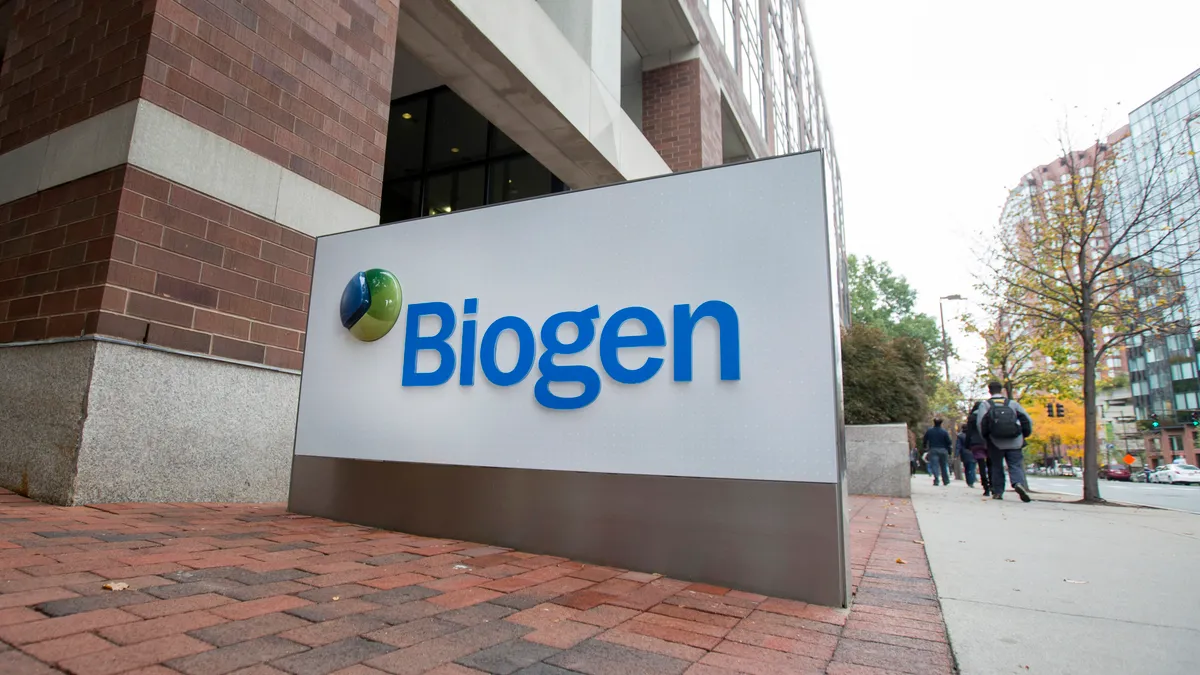Dive Brief:
- Biogen CEO Michel Vounatsos said in an interview published last week with Israeli business news outlet Globes that the big biotech intends to enter the medical device and diagnostic space.
- The company is initially looking to get into "brain imaging and advanced analysis of medical information," said Vounatsos, who noted the importance of understanding the genetics of brain development and activity.
- "Treatment using medication and treatment using medical devices are being combined with each other, especially in neurology. This is a movement that no one can stop. Up until now, we were more of a neuro-biological company than a neuro-technological company, but we want to expand," he told Globes.
Dive Insight:
According to Vounatsos' recent interview, Biogen hopes to bolster its existing pipeline with medical devices and technology.
A Bioggen spokesperson was not able to comment on the report.
The biotech has long been a pioneer in the neurology space — a therapeutic area that has fallen out of favor with other big biotechs and pharmas. While most of its peers have dabbled in treatments for neurological diseases like depression, Alzheimer's disease, pain and Parkinson's disease, few have found success.
The neurological field is particularly difficult to develop drugs for due to a number of factors. In many instances, endpoints are hard to define. In the case of depression, for example, clinical trials often have to rely on unreliable patient-reported outcomes and face potentially confounding high placebo response rates.
Due to the larger trial sizes sometimes needed in neurology, cost can also be a challenge. So far, the space has seen numerous trial failures, particularly in Alzheimer's disease.
In light of these struggles, pharma is turning to data and new technologies to better select trial participants in hopes of finding the most responsive patient population.
Neurology-focused companies could also take a page out of the diabetes playbook and explore more drug-device combinations for treatment.











